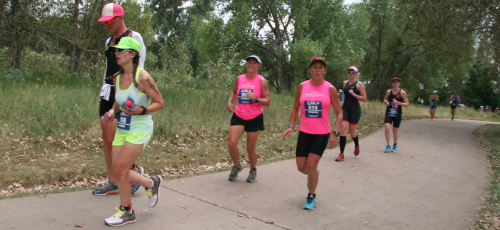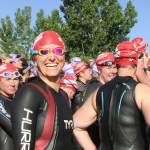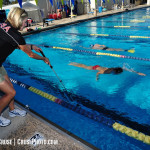What do we do when life gets in the way and we miss a workout or two?
Life gets in the way for everyone from time to time, all part of the human experience. Here are 9 tips to help you manage your lost workouts.
- Understand and accept why you are missing your workouts. Life responsibilities and health complications often force us to miss a day or a few days of training. Rest assured that this is a normal part of life and maintain a positive perspective. Stressing about the situation is not helpful; accept it and move to “Plan B”.
- Avoid worrying about losing fitness. While you won’t gain any fitness while taking time off, taking as much as 10-14 days only adds up to losing about 3-4%. It will only take a few days of training once you’re back on track to make up for lost ground.
- Don’t try to play catch up. Trying to squeeze in a week’s worth of workouts in a few days will not help your fitness. Too much training stress over consecutive days only lead to potential problems.
- Assess the importance of the missed workouts and adjust accordingly. Are you missing key workouts or are they of minor importance to your overall competition and health goals? Do they need to be made up sometime or can you skip them altogether?
- Missing training because of illness/injury or other life obligations. There is a difference. If you’re missing workouts because of family or social responsibilities, count this extra rest and recovery time. Regular training can then be resumed very quickly. But, if it’s because of illness or injury, managing your return to training will take more time and adjustments to your training plan.
- Missing 1-2 workouts. Either let them go and move forward. Or, if you’re missing a key workout, adjust the following week’s workout to decrease the volume of intensity so you can maintain a sensible progression and rate of adaptation. Start back at about 70-80% and don’t re-start with a hard workout. Give yourself an easy to moderate workout to lead into that key session.
- Missing 1-5 days of training. Make your first 1-3 days easy, with one day of short intensity to remind your neuromuscular system what it means to train hard. Then resume normal training.
- Missing more than 6 days of training. You’re starting to loose some fitness, so plan 3-4 days (up to 1-2 weeks depending on the length of downtime) of mostly aerobic training, a day of short intensity, such as strides, then one day of moderate efforts at a zone 3 or tempo effort. Then resume normal training.
- Seek objective advice. Having an experienced coach guide you through missed workouts provides objective, logical feedback, short and long term training plan adjustments and peace of mind through the process.
Keep the faith and be confident that you’ll make it to the starting line!








